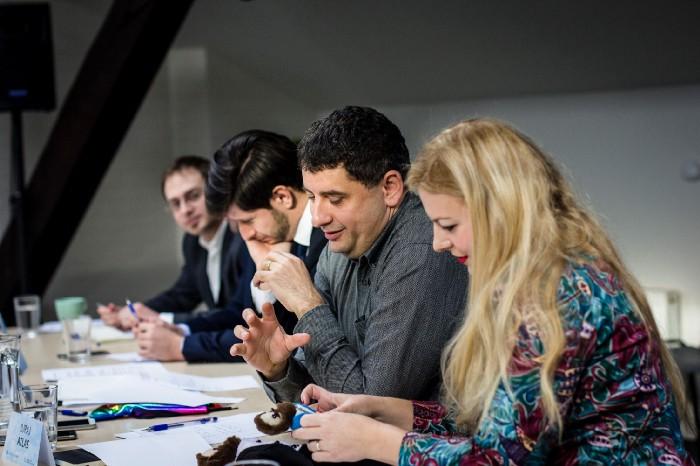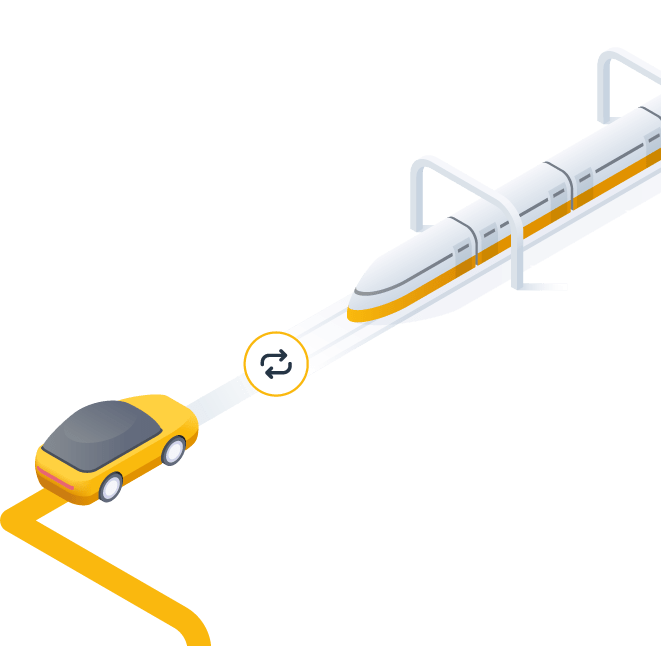J
J
He switched from global corporations to a start-up. He’s one of three co-founders of the Czech start-up Liftago, a ride-hailing application which allows users to choose from the offers of professional taxis based on specific parameters, such as rating, arrival time, or price. Despite many difficult times, Juraj Atlas took Liftago to the very top and handed over the rein.
What was the main impulse for you to leave the corporate world?
I experienced everything I had set out to achieve in the corporate world and gained a lot of experience that I wanted to leverage further and differently. I was not interested in climbing up the corporate career ladder any more. I was tempted to build a global B2C service based on technology and complex systems.
More than a year ago, a story ran through the media of you handing over your position to your colleague Ondřej Krátký. What led you to it?
My mission, which I had pledged to accomplish when establishing Liftago, was to build the best product, put together a perfect team, set up a stable process and organizational structure, and make the business profitable. It took six years and, by coincidence, it corresponded with my professional half-life, so to say. I owe the success to my business partners and the entire Liftago team as well as to investors who have trusted us and supported us.
My passion is to create IT technology products. My key talent is to solve non-trivial problems and analyze complex systems in depth. I started feeling at a certain point that the talent the company needed to flourish started diverging from the passion that drove my energy. If you are able to suppress your ego, such a step is only natural. Or, at least, it was for me.
Over the five years in Liftago, Ondřej had grown professionally and gained a lot of experience so we didn’t need to look outside the company. I realized that my successor was sitting next to me and that I had been — perhaps subconsciously — preparing him for the role all the time.

What career activities are you engaged in today?
I have not left Liftago completely; I am still a co-owner. I no longer take part in the daily management and operations, but as the chairman of the Board of Directors, I continue to advise on a strategic level. I’ve taken on myself to prepare the ground and create a roadmap for another strategic journey of Liftago.
In the meantime, I have started working with several other start-ups and support them not only financially but also with my own capacity, actively mentoring the development of their products and business strategies. And sometimes, I leverage my network of contacts to help them with business development.
Last but not least, I spent some time last year analyzing and validating a few of my fresh ideas and I have been prototyping a new technology for three months now. This new project is called Mileus. It’s really exciting to be creating something new again.
It’s really exciting to be creating something new again.
What is your typical working day like?
Every single day is different. My calendar is usually full at least a week ahead. For all the projects I’m engaged in, I have dedicated days in the week to focus on each fully. That of course doesn’t mean that I won’t help with a project that isn’t scheduled for that day. However, I try not to switch from one to another too often.
I’m looking forward to springtime when I’m finally going to start doing sports three times a week. In winter, I do ad-hoc sports activities but I need a regular routine.
What do you enjoy most about entrepreneurship?
I like beginnings when you have to devise everything from scratch. Building a start-up is like walking in the woods in fog — your goal is to build the best product, but you can’t see the path to this through the fog. That’s why you seek the path high and low. And sometimes, you stumble or hit a tree — I would happily avoid that part. Generally, I like change, though, and it is part of the search. So I like variability in activities, seeking a path forward, and change. Jeff Bezos implements a strategy he calls “Day One” to keep Amazon innovative. That means the entire organization acts as if they were at the starting line every single day.
Grow your ride-hailing business with intermodality
Learn how you can:
- Boost search to ride conversion rate
- Increase ride frequency and average revenue per user
- Improve vehicle utilisation and fleet efficiency
Download our free case study to find out how you can grow your ride-hailing business sustainably by providing intermodal service to customers.

What is your personal goal?
When I worked for one of the corporations, I would travel to Bratislava on Monday and back to Prague on Friday for two years because of one project. At that time, I promised to myself that the moment I feel that work is damaging my personal life — most importantly family life — I’m ready to give up the career. This won’t change, ever. For me, keeping a work-life balance is not a cliche. Work is part of my life but not as important as the life itself. In my life, family and friends play a major role. The most important people in my life are my wife and my daughter.
I need to enjoy the work I’m doing. Then I can be sure to deliver results that will benefit others and perhaps change the world. This world could be the people closest to me, family, friends, employees, the city or country, and maybe even the entire world. I don’t have a point to reach to be content. So I could say my goal is to be content with everything I do and not be ashamed of any of it. And when I screw up along the way or learn something new, I look for opportunities to share that experience.
Building a start-up is like walking in the woods in fog — your goal is to build the best product, but you can’t see the path to this through the fog.
What are your plans and visions for the future?
Now I have at least six years of worries and joys ahead of me, working on a new project. In the next 15–20 years, mobility is going to evolve and transform in ways we can’t imagine. I want to be there. I can imagine different versions of the future and I have only one, three-word prediction, which I am not afraid to say out loud: “I DON’T KNOW”. However, I will always do things in such a way as to motivate and help people around me to make their dreams come true and enjoy what they are doing.
I would love to build an organization where there is natural motivation stemming from each member’s autonomy in terms of the 4T (Task, Time, Technique, Team), as defined by Dan Pink in his book Drive.
What, in your opinion, is the ideal age to start a business?
I don’t think there is something like the ideal age. There may be more favorable and less favorable conditions. Also, (perceived) risks differ with age. When you are young and single, it is easier to try things out. However, lacking experience, you are likely to screw up more than you’d like. And this is a part of gaining experience. Or you can spend some time in a more mature company that has already established reasonable business processes. You can learn, get inspired, and grow a little bit older. And then leverage the experience in your own business. But in the meantime, you may settle down and start a family, which will transform your view of business risks completely. Or you may grow lazier.

What would be your advice to young people also thinking about starting their own business?
Look for your passion and your talent. You can do so equally well in your own business as in an established company (just choose carefully). Don’t believe that a better opportunity will never come. Don’t get blinded by and infatuated with your own idea. At least not until you find out that there are other people apart from you willing to pay for it. Seek problems that are worth solving. Once you find a problem that is worth making an effort for, stop analyzing and start testing quickly.
Don’t go it alone. In business, you will both rise and fall. Your moods will swing. And when you feel like ditching everything, you will need a partner by your side who will support you and together, you’ll cross that valley of tears or death. And you will repay next time. Most importantly, make sure you keep your personal integrity. If you achieve great success but destroy personal relations, with whom will you enjoy the success or happy life?
This article is a translation of an article published in 2019 by Soutez & Podnikej.
.
For more blog posts and urban mobility updates, follow Mileus on LinkedIn:









